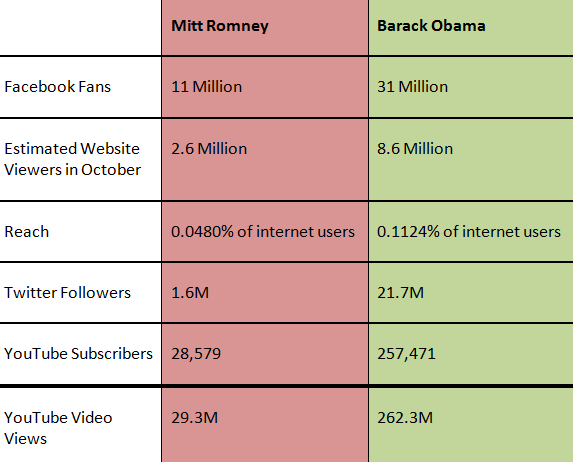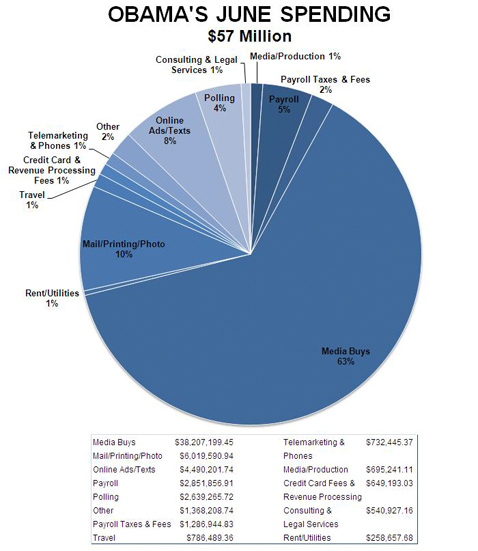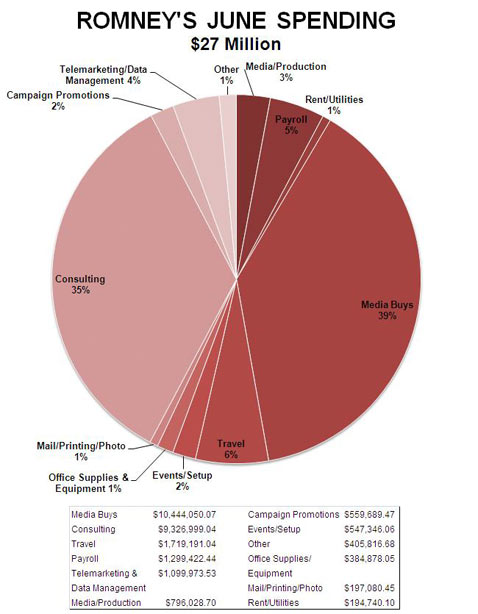Here is a chart breaking down the social media statistics for both major candidates. Obama had a much greater presence on social media than Mitt Romney.
In June Spending, the Obama campaign spent a modest 8%, good enough for around 4.5 million dollars:
In Mr. Romney's spending pie chart, online ads purchases do not appear:
While it's presumptuous to say that Mitt Romney lost the election because of his failures in social media campaigning, it could very well have played a significant role in the defeat. President Obama's team was able to clearly and efficiently reach its audience, as well as provide mobile tools for volunteers. The emphasis on social media by Team Obama shows that they were, perhaps, a bit more innovative in their strategy and willing to take the risk in investing heavily in digital.
That risk, if it was even regarded as a risk, certainly paid off. Obama was able to score a victory, helped by the fact that his campaign had solid organizing aided by digital tools. By pushing the envelope and developing new campaign strategies, the Obama campaign stayed ahead of the curve and ahead in the polls. Mr. Romney took the more conservative approach, not using extraordinary resources on new technologies. Conventional tactics, used long before this social media revolution, no longer seem as effective.
2008 was known to many as a "social media election." This election also was affected by social media influences. In the future, the influence of social media is likely to grow. In order to keep up with the times, candidates for elected office need to do more on social media.
We have seen the exceptional political influence social media sites can wield through these past two presidential elections, as well as movements such as the Arab Spring. It seems that for now, this technology is here to stay in American and world politics.



